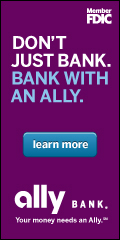
From the NBMBAA Entrepreneurial Institute®: Crowdfunding! – An Alternative Funding Source
 The success of KickStarter and other crowdfunding sites devoted to raising funds for specific, often lower-budget projects by offering incentives such as free tickets to the film project, a seat on an advisory board or receipt of the product’s first production run, led to the inclusion of an equity-crowdfunding initiative in the Jumpstart Our Business Startups (JOBS)Act in 2012. The success of KickStarter and other crowdfunding sites devoted to raising funds for specific, often lower-budget projects by offering incentives such as free tickets to the film project, a seat on an advisory board or receipt of the product’s first production run, led to the inclusion of an equity-crowdfunding initiative in the Jumpstart Our Business Startups (JOBS)Act in 2012. Although the proposed rule defining the process, requirements and implementation of equity-crowdfunding for small businesses is in the review stage following public comments, Kimberly A. Peyser, special advisor to the associate administrator, Office of Investment and Innovation at the Small Business Administration, presented an overview of the proposed rule and the potential benefits to small business owners during the Wednesday NBMBAA Entrepreneurial Institute®. While small business owners have to look toward venture capitalists or angel investors for equity investment, the option to offer crowdfunding equity positions expands the opportunity to invest to more people and opens new opportunities to reach investors for small businesses. The proposed rule will require an equity-crowdfunding platform to register with the Securities and Exchange Commission (SEC) for monitoring and oversight to ensure equity offerings are legitimate. Limits on how much individual investors can commit to an equity offering are established and small businesses are limited to crowdfunding no more than $1 million in a one-year period. While access to a greater audience of potential equity investors is a benefit to small business owners, there are some issues that must be addressed, points out Peyser. "The documentation costs to move forward with equity crowdfunding could potentially cost small business owners between $15,000 and $20,000, which was frequently identified in public comments as a barrier for most small businesses." Protecting potential investors from fraudulent offerings is a concern that would be addressed by SEC oversight, but the potential for fraud would still be present. "We are also concerned about protection of intellectual property because the requirements call for public posting of detailed business plans," she points out. The SBA is currently talking with the Patent and Trademark Office to identify protections for small business owners. As the proposed rule continues to be reviewed and revised to reflect concerns, the SBA and SEC will work together to educate small business owners about funding options provided by the JOBS Act. One seminar attendee pointed out the success for crowdfunding specific projects, which is not prohibited for small businesses as long as equity positions are not involved. A restaurant in Washington D.C., raised funds from local residents through a crowdfunding platform in exchange for free meal coupons. The owners, who were previously unable to quality for a loan, were able to use the funds raised as proof of local support and a financial base to obtain the loan they needed to fully fund the business. |
National Black MBA Association, Inc. ® | 400 W. Peachtree St. NW, Suite 203 | Atlanta, GA 30308 www.nbmbaa.org |



